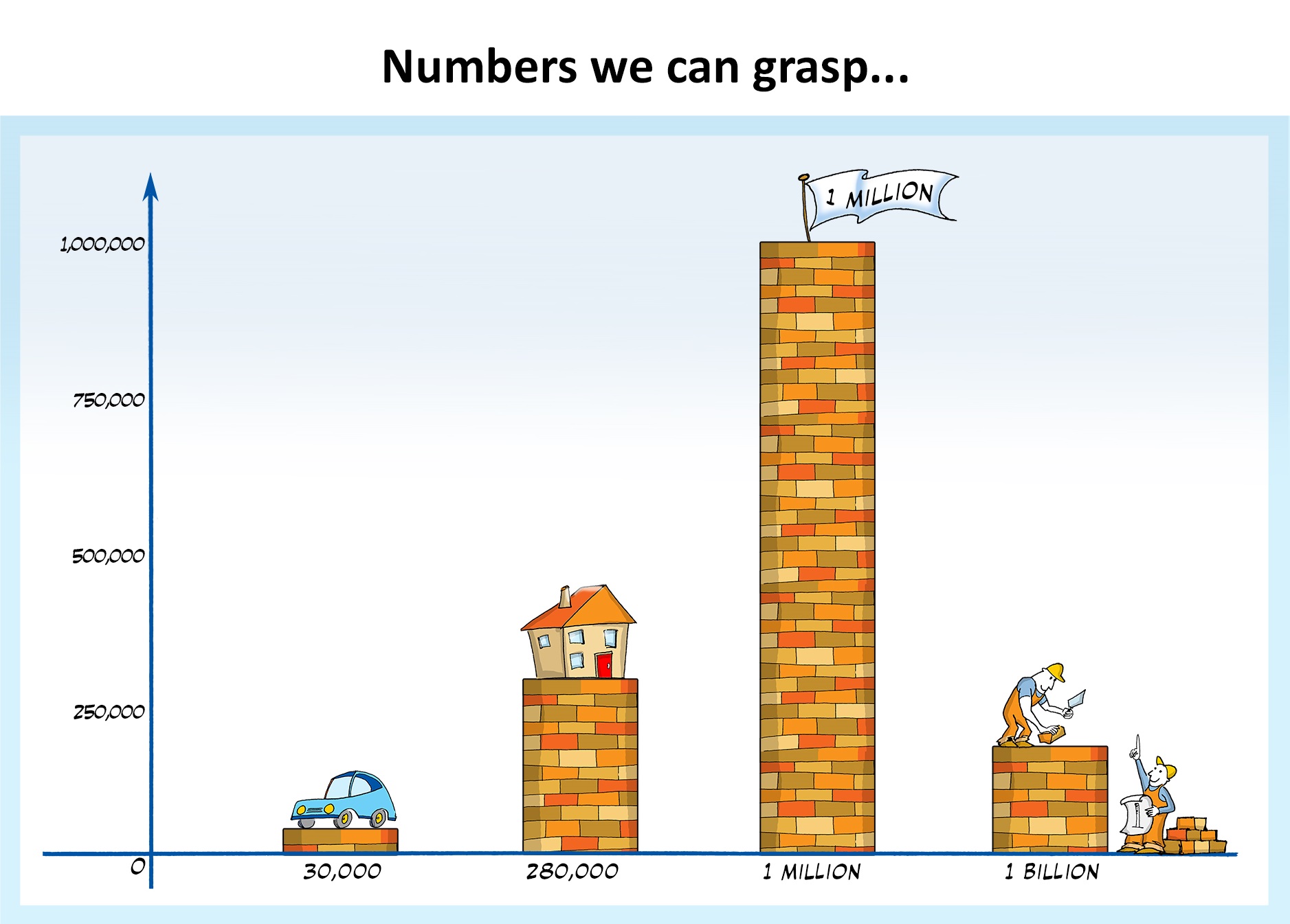An Intuition Calibrator
Everyone knows that a billion is a thousand million, but that just begs the question: do you really know what it means for something to be a thousand times bigger than something else?
Two pictures to help calibrate your intuition:


It’s a lot to take in, so a summary chart:

Why does it matter that you’re probably slightly bemused by this? Well, we live in a society in which vast wealth inequalities have emerged, but remain hidden in plain sight by our generally poor intuition for very large numbers.
One the one hand we know that a billion is a thousand times larger than a million, but we have a poor feel for it, because it is not a comparison we are used to making in everyday life. ‘Does that shoe fit, sir, or would you like to try one a thousand times bigger?’ (Heck, I was curious: the shoe a thousand times bigger than my size 11 running shoe is three and a half football fields in length.)
Billionaires are not just millionaires who have gone on to do a bit better. They have amassed a vast amount of wealth that modern Western discourse rationalizes as being their ‘fair share’ of – we are acculturated to believe – the far greater economic ‘value’ they have created. Which just raises a ton of questions about what we mean by ‘value’ and ‘fair’…
***
(Why 30,000 and 280,000? Roughly, those were recent (2020) values for cars, incomes and houses in the US and UK, i.e. large monetary numbers people in those countries have some feel for. Recent average prices in the US for a new and used car were $37,000 and $20,000 respectively. Median US personal income is about $34,000, while median UK household income is £30,000. Recent average existing home prices in the US were $280,000 and in the UK, £230,000. Of course, these are all large numbers within two of the wealthiest countries in the world…).